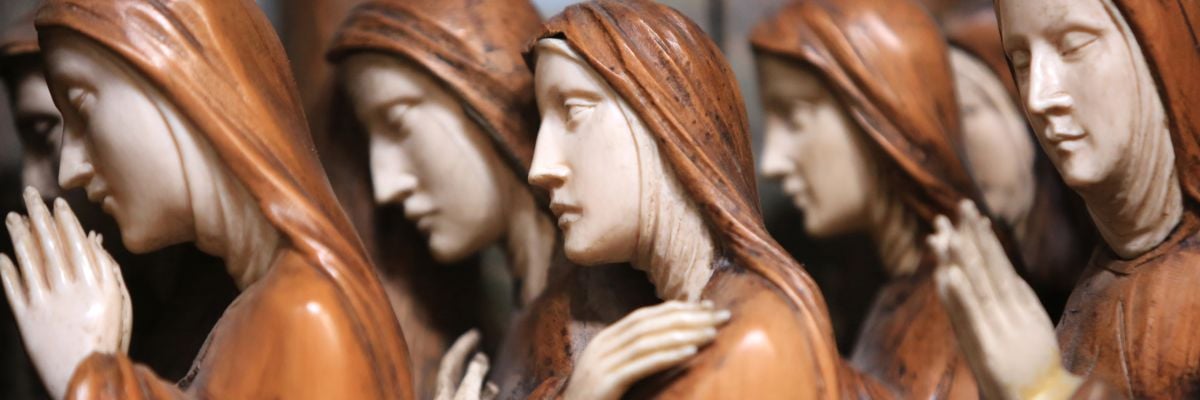Anyone please feel free to contribute. When it comes to influence and leadership, women can:
–be leaders of Catholic institutions, like schools, hospitals, charitable organizations, television and media networks (Mother Angelica, anyone?), etc.
–be spiritual directors and advisers
–preach and teach the faith, even to men. (I note this because some conservative Protestant groups only allow women to lead other women).
–be spiritual leaders and administrators, such as abbesses, who almost act as “bishops” of her abbeys, even traditionally carrying the bishop’s crozier (shepherd staff)
–be superb theologians, in universities and otherwise, even going on to become “Doctors of the Church”
–be influential in their spiritual and Christian example, such as the saints, the greatest of whom is a woman
–be advisors and hold leadership even in various Vatican offices
–hold pastoral and leadership roles in both the diocesan and parish level, e.g., pastoral associate, youth ministers, lectors, teachers, head of RCIA, etc.
–be involved in the liturgy in many ways.
So you see, the context is simply different. Catholicism has multiple roles in the church. The Catholic Church is even behind religious institutions beyond the local parish — like schools and hospitals. It’s VERY hard to judge the CC by another Protestant church’s standard, especially one so small as the Disciples of Christ (author of blog post), which is not like the CC at all institutionally (even though they do have a few schools, etc.).

